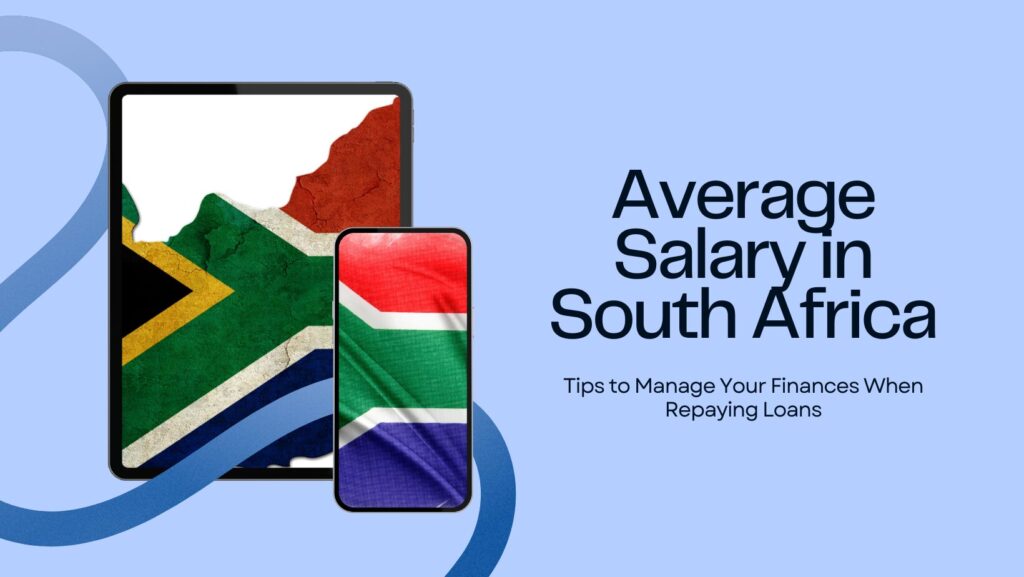Tips to Manage Your Finances When Repaying Loans in South Africa
Securing a loan to meet important everyday financial needs like continuing children’s education, investing in real estate, or starting a new business is certainly beneficial in the long run. Regardless, it is vital in the current strugglesome environment to properly manage repayments within agreed timelines to avoid damaging your creditworthiness or falling into murkier debt waters.
Where the Average salary in South Africa is not enough, and the cost of living rises steadily across the country, keeping up with loan EMIs (Equated Monthly Installments) while balancing other expenses requires meticulous budgeting and money mindfulness. Thankfully, getting yourself used to certain debt management fundamentals can help you stay financially up even during lean repayment phases.

In this insightful guide, we delve into practical tactics South Africans can adopt to smoothly navigate their loan commitments over durations. So, let’s explore these debt-clearing directives to craft tailored financial blueprints for individual circumstances.
Tracking Loan Terms Vigilantly
Whether securing a loan from reliable loan lenders in South Africa like Capitec or FNB for sizeable amounts or utilizing smaller SASSA online application granted credit, understanding agreed terms upfront is always wise.
- Reviewing contractual clauses regarding interest rates, tenures, applicable charges, and minimum payment due dates prevents unpleasant payment surprises down the line.
- Note repayment schedules in diary reminders and automate EMI transfers through debit orders if possible for convenience.
Prioritizing Debts Strategically
Owing multiple creditors requires ranking liabilities intelligently. Assess each debt amount outstanding, monthly interest levied, and repayment duration remaining to determine which eats into earnings the most aggressively. Focus diminishing principal amounts on high-interest tallies first to save money long-term.
Always fulfill minimum dues across all loans simultaneously though to sustain positive credit scores, easily facilitating future borrowing if required.
Staying Within Budget Limits Subtly
“Out of sight, out of mind” is a reality for finances without prudent budgeting. Compile income sources from salaried employment, side gigs, or applicable aid like the disbanded SASSA Grant application. Cross-reference earnings against essential and discretionary monthly expenses to spot potential overspends curtailing through sacrifices like downgrading entertainment/dining-out budgets.
Track spending habits religiously through digital apps/notebooks for a few months to truly grasp spending patterns ripe for frugal tweaks bolstering repayment capacity splendidly.
Maximizing Savings Potently
Creating an emergency nest egg guards against unforeseen disruptions derailing timely debt retirement. Automate affordable allotments from each paycheck towards high-interest savings buckets, eliminating impulse withdrawals, and forcefully cultivating capital over time.

Comparatively risk-free investment categories yield long-term returns and act as a plan B if job losses occur while still servicing credit healthfully.
Exploring Debt Consolidation Concisely
Juggling various interest rates grows expensive, encouraging debt consolidation and assessing aggregate balances, accrual schedules, and credit scores. Replacing multiple minimum payments with a single lower EMI through refinancing eases short-term cash flow stress, potentially resolving obligations earlier while preserving good standing across agencies.
Seek professional financial advisors’ opinions, such as SASSA & Loans, to weigh consolidation pros/cons specific to one’s fiscal circumstances. Rushed decisions could backfire through excessive fees without tangible future benefits.
Communicating Regularly with Lenders Constructively
“Out of sight, out of mind” also applies to debtors if payment due dates slip through the cracks amid hectic work-life balances. Proactively engaging lenders and furnishing income evidence like payslips aid flexible repayment resolutions during unplanned hardships like retrenchments via payment holidays or part settlements, avoiding defaults and harsh penalties entirely.
Constant updates also enhance creditor-borrower rapport, qualifying for cheaper capital and faster approvals on subsequent loan applications.
Capitalizing on Governmental Support Prudently
The South African government launched economic empowerment and employment stimulation initiatives extending assistance to applicable individuals. Research programs accommodating one’s needs around skills training, job placements, small business funding, or SASSA online application reliefs to potentially free up discretionary earnings allocated towards debts. Supplementary income streams help expedite the loan retiring process considerably.
Exploring Insurance Safeguards Judiciously
Taking credit life and disability covers provides security if unfortunate events render the borrower or co-signer unable to service debts. Family dependents receive insurance payouts covering outstanding balances, preventing harassment from creditors during difficult transitions. Evaluate premium outlays versus risks to determine appropriate insurance requirements for specific debts.
Seeking Budgeting Counsel in Spare
Severe credit dilemmas that induce unmanageable stress levels might require guidance from unbiased third parties. Non-profit consumer credit counseling societies evaluate individual cases confidentially, identifying viable plans like debt management programmes to streamline repayments over longer tenors with creditors’ consent at low consolidated rates. CCCs also assist in repairing damaged credit history, taking strain off mental well-being.
Closing it out
South Africans stay equipped to repay loans healthfully, even amid financial hard times with a disciplined and organized strategy using the above tactics. Responsible borrowers thrive from the debt cycle into financial independence, gaining the freedom to focus their energies on goals aligned with objectives. With careful money management and open lender communication, individuals steer clear of potential credit difficulties while abiding by contractual agreements. Check out our other detailed guides on SASSA & Loans to take a step further towards a healthy financial independence.